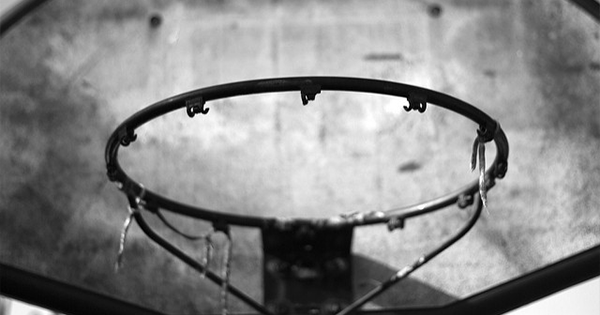
In basketball you can foul a guy unconsciously in uncountable ways, from awkwardness or misposition or laziness or recklessness or foolishness or weariness; you can even foul a guy unconsciously without actually fouling him, if the referee is out of position, or grumpy, or distracted, or making the classic phantom call that referees sometimes do, when they blow the whistle because you should, by all rights, have committed a foul on that play, but you miraculously didn’t, yet he will assume you did, and you will surely earn a technical foul when you point out, in a calm and reasonable manner, that he is a horse’s ass of epic proportions and that is why women don’t like him and guys hit him in the back of the head with an errant pass once a season on principle.
But one thing ballplayers never talk about is all the conscious ways to commit fouls, of which there are many, of all different shapes and sizes and flavors. There are the light experimental fouls you commit judiciously, trying to discover the day’s transgression line, which is different for every referee. Some referees will whistle almost any contact; others will allow battery with pumpkins and mammals and snow boots. There are message fouls, which are sly and subtle ways to inform an opponent that no, he cannot set up permanent camp in the lane, and no, he cannot crack your hands and wrists and arms, and no, he cannot grab your shirt, and yes, you are going to damn well get around that corner by using your elbow as a sharp lever if necessary, and yes, you are going to continue to drive the lane even if he flops and fakes so dramatically that the stock market goes down, and yes, you are going to slip his pick all night long even if there is to be a brief intense grapple at the passage point every time.
Then there are the light fouls designed not to be seen by the referee, such as the way you gently touch the shooting elbow of a shooter just as he is releasing his shot, secure in the knowledge that the referee is looking at the ball, not at your hand; and the way you gently rest your hand on the midsection of a shooter taking a fallaway shot, and give him a helpful shove in the direction that he is falling away, so that what began as a 10-foot becomes a 13-foot fallaway; and the way that you make a seemingly valiant effort to arrive on the scene of a hook shot, and having failed to arrive swiftly enough to get a hand up to contest the shot, politely tuck your shoulder and deliver a thunderous blow to the shooter’s chest, which often does affect the hook shot, not to its benefit.
Then there are the conscious fouls that you commit with vengeful intent; I suppose these are also message fouls, but they are not the conversational fouls as above, by which players communicate certain opinions and policy stances. These are more like messages delivered in large bold type, so that the recipient of the foul—and pretty much everyone else in the gym—gets the message. Among this sort of foul is the high elbow, which is a blunt communication to cease and desist whatever it is that the recipient has been doing, usually flailing his own elbows or setting overly savage picks; and there is the ostensible attempt at a steal that may or may not get part of the ball, but assuredly gets every millimeter of the recipient’s hands, with a resounding crack, which is usually a message about how someone should stop swiping at the ball without the slightest hope of stealing it.
There are, of course, other more egregious and dangerous fouls in basketball, but those sorts of fouls are vulgar and mean and have no place in the game, and are rightly punished, often with ejection or a fist in the face. The less we talk about those fouls the better, for they are, like narcissistic demagogues, things that thrive on attention; so let us ignore them, and perhaps they will wither away, which will be a welcome benefit to the greatest of games, and to this wild and lovely world.


